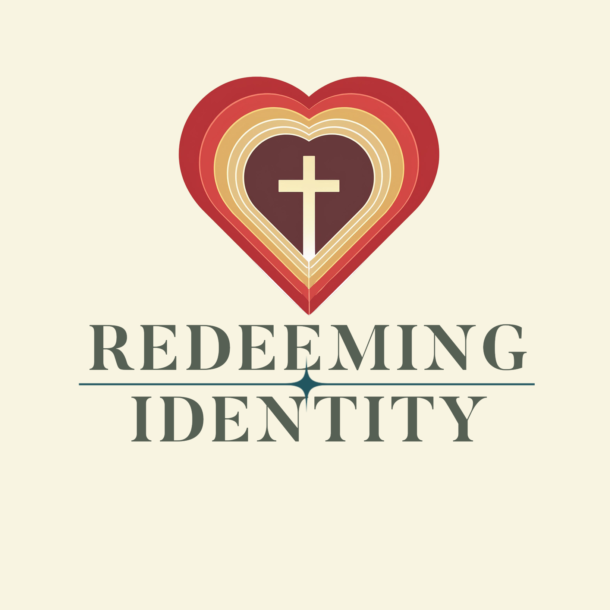The Living Sacrifice
The winter Olympics held in 1980 at Lake Placid, New York, had many highlights, like most Olympics. The ones that captured my attention as a young boy were the accomplishments of Eric Heiden. He was an American speed skater scheduled to compete in all five speed skating distances, 500 m, 1000 m, 1500 m, 5000 m, and 10000 m. By the end of those Olympics, Eric had accomplished something that had never been accomplished previously, or since. He had won the gold medal in each of the races with record-breaking times.
This amazing athletic accomplishment inspired me and that we both had the same first name also helped. As a young boy, you could find me frequently in the basement of our home on my roller skates pretending that I was speed skating in the Olympics. While skating laps around the basement, I would be imagining what it would be like to race on the ice. Where others wanted to win the Super Bowl or the World Series, I wanted to become a world class speed skater and win the Olympics.
As you probably surmised, my dream of winning the Olympics as a speed skater never became a reality. I was a young boy with a dream of speed skating, but I did not own a pair of ice skates or even knew how to ice skate. The basement which I used as my skating track more closely resembled a run down roller derby track from a futuristic apocalyptic movie than the smooth clean ice on a speed skating track. These circumstances could have been overcome if I had really wanted to become a speed skater. The real setback to my possible ice skating career was my unwillingness to actually sacrifice to achieve this goal.
The time that elite athletes invest in training to prepare to compete in the Olympics demonstrates their commitment to achieving their goal. The training regiment of Eric Heiden prior to the Olympics included hours each day of training on the ice, when it was available, as well as off the ice. He followed this rigorous routine almost every day of the week for years. A regular part of his training included doing one-hundred squats with a 300-pound weight, taking a brief break, then repeating the effort. Athletes at this level will sacrifice much for the future opportunity to compete in the Olympics; with no guarantee of winning. As I roller skated on my imaginary track, I quit after completing relatively few circuits for some other diversion. This did not show the willingness to sacrifice what I would need to even prepare for competing at this level.
Choices and Sacrifice
Much of life involves making choices for those things we are and are not willing to sacrifice. A significant part of our identity is what we value, or our priorities. They are part of what defines who we are and who we may one day might become, since what we will sacrifice for reveals what we value.
All of us have developed, as part of our identity, a complex hierarchy of priorities, with higher priorities given more importance than lower ones. This hierarchy of priorities determines what we may be willing to sacrifice and for what we are willing to sacrifice. We will, by necessity, sacrifice a lower priority to achieve a higher priority, but rarely the other way around.
This process likely involves every aspect of our lives, including our relationships, our work, our investments, and even where we live. Each time that we make a decision, we are making a choice to sacrifice one option for another. We may not even perceive the decision as one of sacrifice, most of the time. We develop an orientation for our lives through each choice, demonstrating who we are and who we are becoming.
The question that we need to ask ourselves is where is our identity pointed? The hierarchy of priorities provides our identity with the set of directions for deciding what we will sacrifice and for what are we willing to sacrifice. What do these decisions demonstrate about who we are? Our values and priorities should be thoughtful and determined, since we only have so much capital in our lives to invest and these decisions shape our life.
The Rich Young Ruler’s Choice
A rich young man approached Jesus during his ministry and asked the question, “Good Teacher, what must I do to inherit eternal life?” (Luke 18:18 ESV)
The response of Jesus to his question came in two parts. Based on the young man’s question, he was looking for something to do, to show his commitment to God. A common belief of many people was that doing the right thing was all that was necessary for salvation. Jesus started with restating five of the ten commandments, focused specifically on actions, which he would have been very familiar with. The young man’s response was that he had kept all of these since he was a youth.
Then came the second part of Jesus’ response, “One thing you still lack. Sell all that you have and distribute to the poor, and you will have treasure in heaven: and come, follow me.”
This young man had come to the right person, the Good Teacher, with the right intention, but received a response different from what he was likely expecting. How would he have responded if Jesus had stated that he needed to go to temple each week? tithe a portion of wealth to the temple? celebrate the religious holidays? What if the response had been to just believe in me and what he was doing? What if Jesus had stated that he needed to just sell a portion of what he had and give it to the poor? If this had been a simple activity that could have been added to his current lifestyle, his response may have differed greatly from how he actually responded. Instead, when he heard what Jesus commanded, “he became very sad.” (Luke 18: 23)
We cannot just keep our identity and include the label of disciple of Jesus Christ. It must be a complete re-orientation of our entire life and identity, with God at the center defining who we were created to be and what we were designed to do.
Jesus’ response was not focused on what he needed to do, but on his identity, specifically on his perspective and priorities. He was calling him to make a choice about what he would sacrifice to gain the eternal life that Jesus was offering. What was of greater value to him? What would he be willing to sacrifice to inherit eternal life? Would he change who he was to become who Jesus offered him to be?
The response of the young man communicated clearly to Jesus the answer to these questions. He would not sacrifice what he had, his riches or status, to gain what Jesus offered him. This decision was about more than how much he owned. If inheriting eternal life was his greatest priority, he would have been willing to sacrifice anything and everything for it. Jesus chose this action because he knows that what we do comes from who we are. Forcing the young man to make this choice would demonstrate his priorities and what he would sacrifice, or not sacrifice, to obtain eternal life.
Our Choice
The eternal life that the young man was searching for and which Jesus offered is not merely earned by what we do. It is not something that we can gain through knowledge alone, either. No matter how much we have done or what we have learned, there will always be at least one thing we still lack. We cannot gain eternal life through our own will and effort, it is gained only through surrender and sacrifice.
Jesus offered him eternal life, and continues to offer it to us, but it is not an add on to our current life. We cannot just keep our identity and include the label of disciple of Jesus Christ. It must be a complete re-orientation of our entire life and identity. God must be at the center defining who we were created to be and what we were designed to do. Jesus stated that it was difficult for an individual that is rich to enter the kingdom of God, which illustrates why the young man walked away from Jesus’ offer. Jesus stated that this was likely because of his riches, since individuals that see themselves as rich do not recognize their need for a new life and identity; what they have satisfies them and can become an idol in their life. This is in contrast to what Jesus claimed in the sermon on the mount, “Blessed are the poor in spirit, for theirs is the kingdom of heaven.” (Matthew 5:3)
Although it is a gift of God, purchased by the sacrifice of Jesus, we can only receive it when we come willing to sacrifice who we are to become who God leads us to be. In the Psalms, David described the sacrifice that was pleasing to God.
“For you will not delight in sacrifice, or I would give it;
you will not be pleased with a burnt offering.
The sacrifices of God are a broken spirit;
a broken and contrite heart, O God, you will not despise.” (Psalm 51:16-17)
God is only satisfied with sacrifices that are offered from the correct orientation, from “a broken and contrite heart.” Just as a person who knows they are sick goes to a doctor to get the medicine that will help them heal, God only wants our sacrifices when they come from someone that knows that they are living from a broken identity.
When Jesus says to each of us, this one thing you still lack, we need to be willing to sacrifice whatever it is to know and follow him. The eternal life and identity that He offers is of greater value than anything that we may be asked to sacrifice. As Jim Elliot once stated, “He is no fool who gives what he cannot keep, to gain that which he cannot lose.” We need to be willing to say what his disciples said, “See, we have left everything and followed you.” (Matthew 19:27)
The choice to sacrifice your life to follow Jesus is entry into a lifestyle of sacrifice.
“If anyone would come after me, let him deny himself and take up his cross daily and follow me. For whoever would save his life will lose it, but whoever loses his life for my sake will save it.” (Luke 9:23-24)
We are all living from broken identities as a result of our sin and the sin of others. The sacrifices that Jesus will call us to put to death are aspects of our corrupted identity, and we replace it with the one he created for us. This is a way of life, including a commitment to developing the identity that God uniquely created for us by daily sacrificing our previous broken identity. Although we will never do this completely or perfectly, while here on earth we recognize that this is a process where who we are is completely rearranged and more in alignment with whom God is and who he created us to be, until this work is complete by God in Eternity.





0 Comments